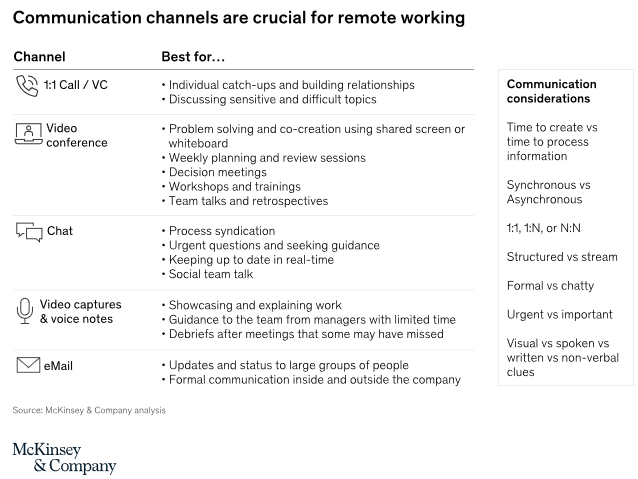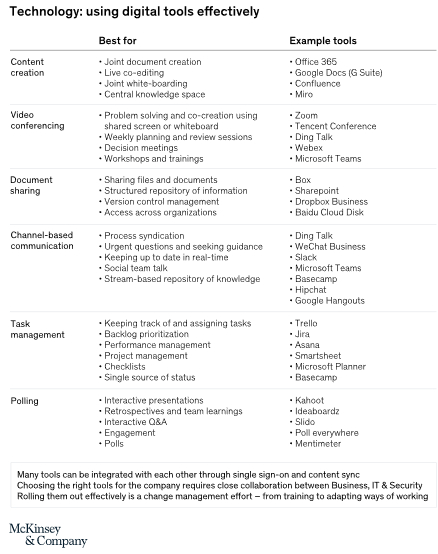As home to some of the world’s largest firms, China offers lessons for those that are just now starting to embrace the shift to remote working.

From Alibaba to Ping An and Google to Ford, companies around the globe are telling staff to work from home in a bid to stem the spread of COVID-19. Such remote working at scale is unprecedented and will leave a lasting impression on the way people live and work for many years to come. China, which felt the first impact of the pandemic, 2 was an early mover in this space. As home to some of the world’s largest firms, it offers lessons for those that are just now starting to embrace the shift. Working from home skyrocketed in China in the wake of the COVID-19 crisis as companies told their employees to stay home. Around 200 million people 4 were working remotely by the end of the Chinese New Year holiday. While this arrangement has some benefits, such as avoiding long commutes, many employees and companies found it challenging. One employee at an internet company quipped his work day changed from ‘996’ to ‘007,’ meaning from nine to nine, 6 days a week, to all the time. On the personal front, employees found it difficult to manage kids’ home-schooling via video conference while coordinating with remote colleagues. At a company level, many felt that productivity rapidly tailed off if not managed properly. This article brings together our experience helping clients navigate remote working, in-house analysis, and insights from conversations with executives in China as they responded to the situation and addressed the challenges. Done right, remote working can boost productivity and morale; done badly, it can breed inefficiency, damage work relationships, and demotivate employees. Here are eight learnings from China that may be applicable around the world, depending on the circumstances:
1. Designing an effective structure
2. Leading from afar
3.Instilling a caring culture
4. Finding a new routine
5. Supercharging ways of communicating

About the authors: Raphael Bick is a partner in McKinsey & Company’s Shanghai office, where Tianwen Yu is an associate partner. Michael Chang is an associate partner in McKinsey’s Beijing office. Kevin Wei Wang is a senior partner in McKinsey’s Hong Kong office.
More: https://www.mckinsey.com